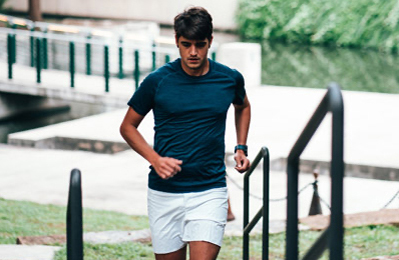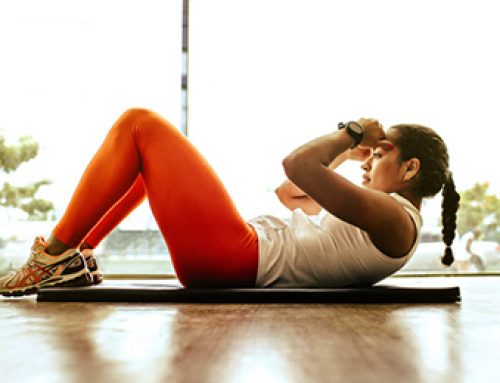by Susan M. Kleiner, PhD, RD, FACN, CNS, FISSN
It is hard to say enough good things about water, but water without electrolytes is like a single-handed handshake. When it comes to hydration and athletic performance, electrolytes play a pivotal role. Water is the most abundant compound in the human body, making up about 60% of the body weight in adults and 70% of the weight of the adult brain. The partnership between water and electrolytes gives water its power as it fills virtually every space in cells and between them. With electrolytes, all biochemical reactions occur in water, and with electrolytes as the guide, water is an active participant in those reactions. From energy production to joint lubrication to reproduction, there is no system in your body that does not depend on the partnership between electrolytes and water.
With the obvious importance of water and its direct impact on athletic performance, it appears that most of us are not drinking enough. Nearly one-third of the U.S. population is walking around slightly dehydrated. For many active individuals, especially those active outside in the heat, replacing drinking water alone is not enough. Electrolytes are also required to ensure proper hydration. The fact is that chronic, mild dehydration, only a 1 to 2 percent deficit of body weight caused by loss of fluids, can have a measurable effect on mental and physical performance, muscle growth and recovery, and even long-term health.
YOUR MUSCLES DEPEND ON WATER AND ELECTROLYTES
Since muscles are nearly 70 percent water, even a small loss of fluid affects their function. Electrolytes facilitate nerve function and nerves control muscles. The electrical stimulation of nerves and the contraction of muscles occur due to the exchange of electrolytes dissolved in water across the nerve and muscle cell membranes. If you’re low on water or electrolytes, muscle strength and control are weakened. A water deficit of just 2 to 4 percent of your body weight can cut your strength-training workout by as much as 21 percent, and your aerobic power by a whopping 48 percent! If you are in a competition you certainly do not want this to happen to you.
When it comes to peak mental capacity and focus, whether on the field, the court, the golf course, or the job, your hydration level affects your performance. In a study of subjects’ abilities to perform mental exercises after heat-stress induced dehydration, a fluid loss of only 2 percent of body weight caused reductions in arithmetic ability (for example, mental focus), short-term memory, and the ability to visually track an object by 20 percent compared to their well-hydrated state. Eye-hand coordination, performance, and your overall ability to compete, diminish rapidly as you continue to dehydrate.
WATER ALONE IS NOT ENOUGH
Water alone is not enough to keep you well hydrated. Sodium, the most common electrolyte, is only one of five essential electrolytes required to help control fluid balance in the body. This is important during intense exercise and critical during activities in warm or hot environments. Electrolytes are minerals in the body that are dissolved in water to form a salty soup in and around cells. This soup allows electrolytes to conduct electrical charges that relay nerve impulses to make muscles contract and relax, and regulate the fluid balance inside and outside cells, preventing muscle cramps. In hard workouts, athletic competitions lasting 45 minutes or longer, or extended activity in the heat, electrolytes are lost through sweat and you should consider supplementing your electrolyte intake.
Research tells us that every athlete has different needs for fluids and electrolytes. While I can’t give you a personalized recommendation, there are some guidelines that will help you customize your own plan. Just like some athletes sweat more than others, athletes lose varying amounts of electrolytes during exercise. If you stay pretty well hydrated, your clothes are not caked with white sodium after exercise, and you do not suffer from muscle cramps, then you are likely meeting your electrolyte needs. But if you are always low on fluids and cramp up during or after training, then extra electrolytes in your diet and during training and competition may make a big difference.
- Here are some practical strategies to maintain good hydration.
Begin hydrating several hours before your exercise or competition so you start training in a well-hydrated state. Weigh yourself before and after training. If you have lost more than 2% of your body weight during exercise, then you are not drinking enough during your workouts. A loss of 2% or more of body weight in fluid causes mental and physical performance to diminish. If you weigh more than before you started to train, you are drinking too much and risk over hydration. Remember if you are drinking more fluids you will need more electrolytes in order to maintain fluid balance in your body. - If you are passing urine less often, and/or it is a darker color than pale yellow, increase your fluid intake. This is a sign of dehydration. Do not aim for very pale to colorless urine because you may end up over hydrating. Urine the color of straw or pale yellow is a good target.
- “Salty” sweaters might need more salt in the diet (as long as you are not at risk of high blood pressure). Test yourself for salt losses by wearing a black T-shirt during training or out on the course and look for salt stains afterward. High salt losses and an overall electrolyte deficiency can be a contributing factor to muscle cramps. However, not all cramps are related to sodium and electrolyte imbalances.
- To consume the sodium and electrolytes that you need and avoid extra sugar and added calories of a sports drink, drink water and use HyLytes according to directions. HyLytes is an excellent source for balanced electrolyte replenishment. HyLytes are electrolyte capsules that are a very effective alternative to sugar filled sports drinks. As every athlete’s requirements to maintain proper hydration are different, electrolytes in capsule form is an easy and effective way to customize intake to meet your body’s needs, ensuring that you play to the best of your ability. This is a great strategy to keep you well hydrated and performing your best.
About the author:
Dr. Susan Kleiner’s credentials include a PhD in Nutrition and RD, FACN, CNS, FISSN certifications and honors. She is a founder and fellow of the International Society for Sports Nutrition and a fellow of the American College of Nutrition. She is a member of the American College of Sports Medicine; The American Dietetic Association; The Sports, Cardiovascular and Wellness Nutritionists Practice Group (SCAN); and The National Strength and Conditioning Association.
Dr. Kleiner is the owner of High Performance Nutrition, LLC, a consulting firm in Mercer Island, Washington, and the author of seven books, including The Good Mood Diet®, POWER EATING®, and POWERFOOD Nutrition Plan.



